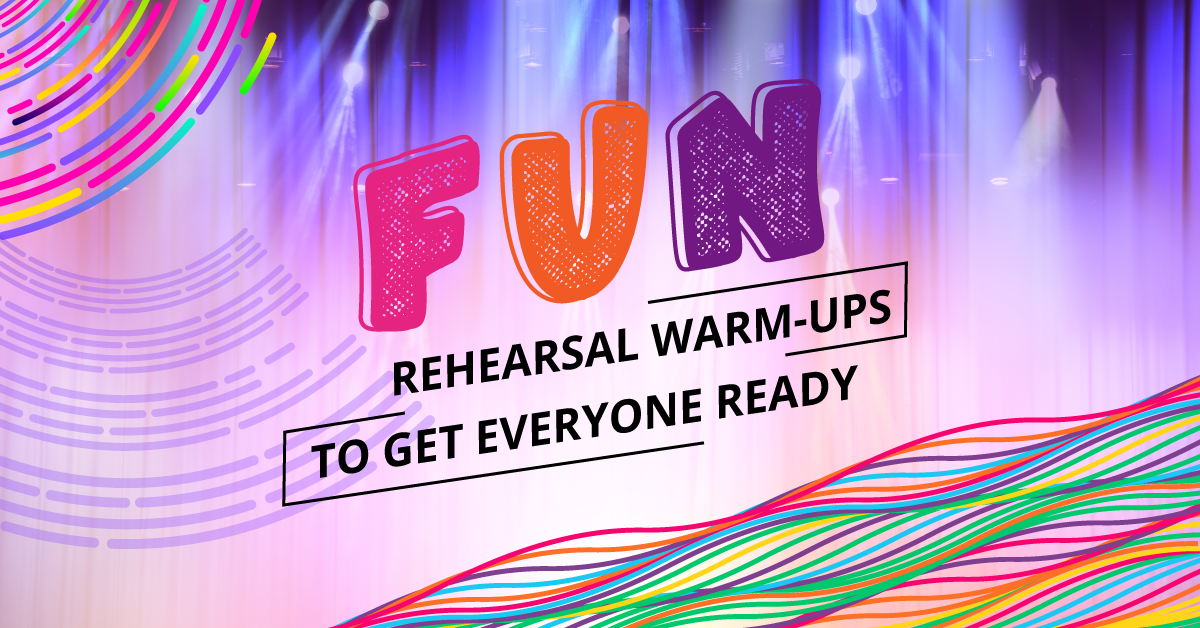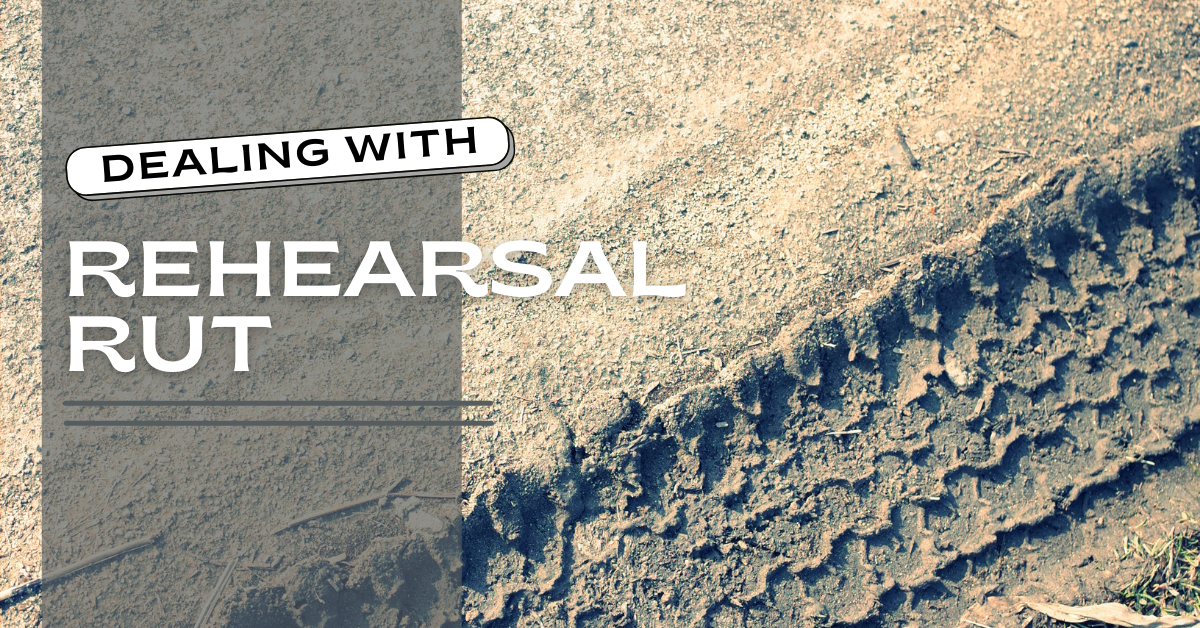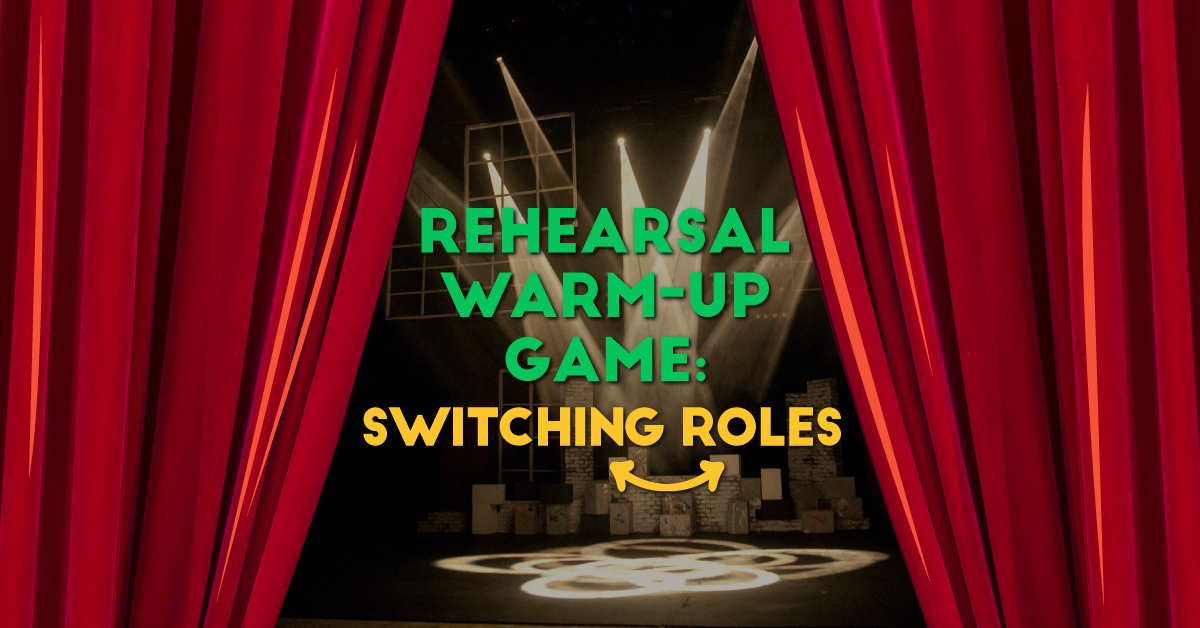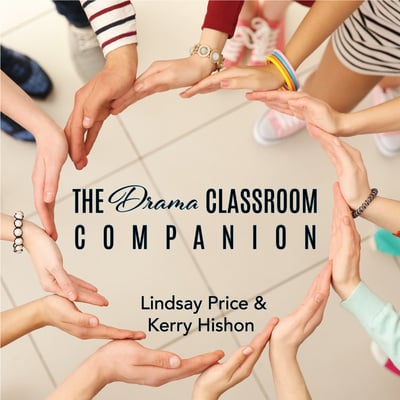Agatha Rex by Lindsay Price is a bold high school take on Antigone - packed with heart, conflict, and a powerhouse ensemble. One girl. One stand. One huge risk. *NEW COMPETITION VERSION AVAILABLE!*
Fun Rehearsal Warm-Ups to Get Everyone Ready
Warm-ups are vital for the rehearsal process, to get students’ bodies and minds ready to work. They should include three parts – physical, vocal, and mental. Some students will resist warming up, believing that it’s a waste of time. One of the best ways to get students committed to warming up is to make it fun, and to hand ownership of the warm-up process to your students. As much as possible, include your students in the creation and execution of warm-ups. Among the benefits are increased buy-in and various leadership opportunities, as well as one less thing for you to do!
Physical
The physical warm-up gets students’ bodies ready for the rehearsal. It helps keep their stamina up while avoiding injuries and strained muscles. It doesn’t matter if the show is a musical or a play – a physical warm-up should be included. I usually allow students to talk quietly during the physical warm-up, as long as they keep moving, so they can get the chattiness out of their systems. However, feel free to take away that privilege if talking gets in the way of the warm-up.
- Choose an up-tempo song and dance it out. Have each student sign up for a rehearsal date when they will choose the song and/or lead the warm-up dance. (I always have my students choose two or three songs and submit them for approval a couple days prior to rehearsal, so I can ensure the content is appropriate.)
- Alternatively, if students aren’t comfortable dancing or leading a dance, they can do a cardio warm-up such as jumping jacks, jogging in place or in large circles around the room, grapevines, step-hop-claps, and so on.
- Next is stretching. The easiest way to ensure each body part is covered is to start from the head/neck and work your way down. It’s important to stretch AFTER the dance party/cardio, so students aren’t trying to stretch cold muscles.
- You can also try these fun and physical warm-ups – Shakedown and Numbered Bodies are especially good to get your students moving.
Vocal
It’s easy to strain your vocal chords, so unless you’re doing a mime show, a vocal warm-up is a necessity. We’ve covered lots of different vocal warm-ups in this post – check out the Vocal Technique & Clarity section in particular. Tongue-twisters, breathing exercises, and precise unison speaking are all good warm-ups to use with your students.
Here’s another simple vocal warm-up. As a group, stand in a circle. Have your students breathe in and out as a group a few times to focus and sync themselves together. In unison, students will recite the following sounds out loud:
- Me, May, Mah, Mo, Moo (inhale), Tee, Tay, Tah, Tow, Too (inhale), See, Say, Sah, So, Su (inhale), Vee, Vay, Vah, Vo, Voo (inhale)… and so on with whatever consonant sounds you like. Give them the next consonant sound during the inhale.
Or, try this one:
- Zing zing zaaaah (inhale), Ring ring raaaah (inhale), Ting ting taaaah (inhale), Sing sing saaaah (inhale)… and again, add whatever consonant sounds you like.
For a bigger challenge or to save time, try combining your physical and vocal warm-ups. Have your students recite tongue-twisters while they’re stretching, or do the consonant exercises above while jogging in place. Keep the pace slow and steady so students don’t get winded!
Mental
Your students are likely busy people, with a lot on their minds. Helping students mentally prepare themselves during warm-ups can help them leave their worries and anxieties outside the rehearsal space and focus on the work at hand. It gives them time to calm their active brains and get into a rehearsal mindset.
Yoga or tai chi-style movements, mindfulness exercises, journaling, and visualization exercises are all great ways to help students calm their minds and get focused. You can also try one of my favourite relaxation and focus exercises, the Mindful Triangle Exercise, with your students. It’s a great way for them to calm and centre themselves before rehearsals.
Related Articles
The Drama Classroom Companion
by Lindsay Price & Kerry Hishon
The Drama Classroom Companion is filled with articles and exercises to build the skills needed for theatrical performance as well as real world skills like creative thinking, critical thinking, collaboration, and communication.
The Rehearsal Companion
by Kerry Hishon
You’ve chosen the play, paid the royalties, done the script analysis, held your auditions, and cast the show. Tomorrow is the first rehearsal. Are you ready? Really ready? The Rehearsal Companion can help!





